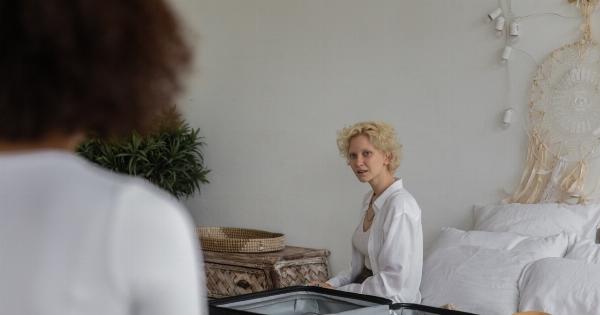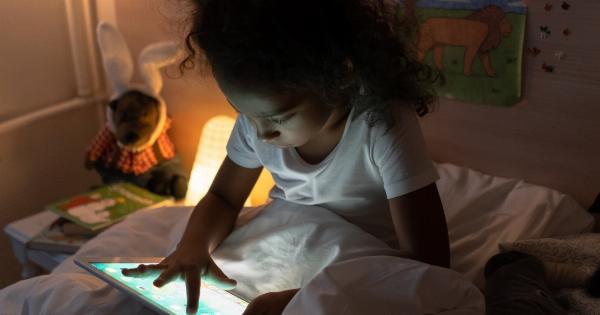Nowadays, smartphones have become an integral part of our daily lives. From work to entertainment, we rely on mobile phones for almost everything.
As we continue to use our phones for longer periods of time, there has been a growing concern about the effect of mobile phone use on our vision.
How does mobile phone use affect our eyes?
Staring at our phones for prolonged periods can lead to many problems that affect our eyesight. This is because bright screens of mobile phones emit blue light, which can penetrate the retina and cause damage.
Here are some ways excessive mobile use can affect our vision:.
1. Digital Eye Strain
When we read from the phone, our eyes have to work harder to keep the text in focus than when we read printed materials. This is because the words on a screen are often less sharp and less saturated than those on paper.
As a result, we tend to blink less while using phones than reading printed materials. This can cause discomfort, eye fatigue, and overall eye strain which can lead to further complications if left unchecked.
2. Dry Eyes
Blinking helps to refresh eyes by spreading tears over the surface of the eyes. When we spend long hours looking at screens, we blink much less frequently.
This can lead to dryness and itching in the eyes and eye irritation which can lead to other complications.
3. Myopia (Nearsightedness)
The more time people spend on their phones, the greater the risk of developing myopia or nearsightedness. This is because the eyes adjust to near-focus which then leads to difficulties in seeing objects at a distance.
The rise in smartphone use has thus caused an increase in the number of individuals with myopia.
4. Insomnia
The blue light of mobile phones suppresses the production of melatonin, a hormone that helps regulate our sleep-wake cycle.
When we use our phones at night, then most likely, the light emitted can disrupt our sleep patterns and thus lead to troubles sleeping. Poor sleep patterns or insomnia then have negative effects on both our physical and mental well-being.
5. Macular Degeneration
Lastly, the blue light emitted by phone screens is harmful to our retina and can cause damage over time. Long term damage can lead to macular degeneration. Macular degeneration causes blindness and its effects can’t be reversed.
It is then essential to protect one’s eyes from a phone’s blue light over longer periods of time.
How can one protect their vision while using mobile phones?
Although mobile phone use is almost inevitable in the modern world, there are several things that we can do to minimize the negative impact of our phone on our vision:.
1. Limit the Time Spent on Mobile Phones
The easiest way is to limit screen time. One can try blocking out a few hours in which to take breaks from phone use or use them for very important issues only. That way, we can help our eyes get a break from the blue light that is emitted.
2. Adjust Screen Settings
One can simply adjust their phone’s screen settings so that the amount of blue light that it emits is decreased.
There are several apps and settings offered by phones to reduce blue light, from the Hue of the screen, Dark Mode, or apps such as F.LUX which help filter blue light even at night.
3. Use Proper Eye Protection
Prescription glasses or lenses designed for digital device use can alleviate eyestrain. These use a layer of protective coating and are specifically designed to minimize glare and blue light exposure.
4. Blink Often
We should also try to blink more often when using phones. It may sound minimal, but it will help to refresh eyes by spreading tears over their surface, avoiding dryness and reducing discomfort.
5. Keep Your Phone at a Comfortable Distance
Keep phones away from your eyes by maintaining a comfortable distance from the screen while using it in order to reduced screen glare and focus strain.
Conclusion
It is safe to say that excessive mobile use can indeed have negative effects on one’s vision. While quitting using the phone is not an option, we can take preventive measures to reduce the extent of the damage.
By reducing screen time, adjusting screen settings, using ocular protection, blinking more often, and keeping our phone at a comfortable distance, we can minimize the negative impact of our phones on our vision.





























